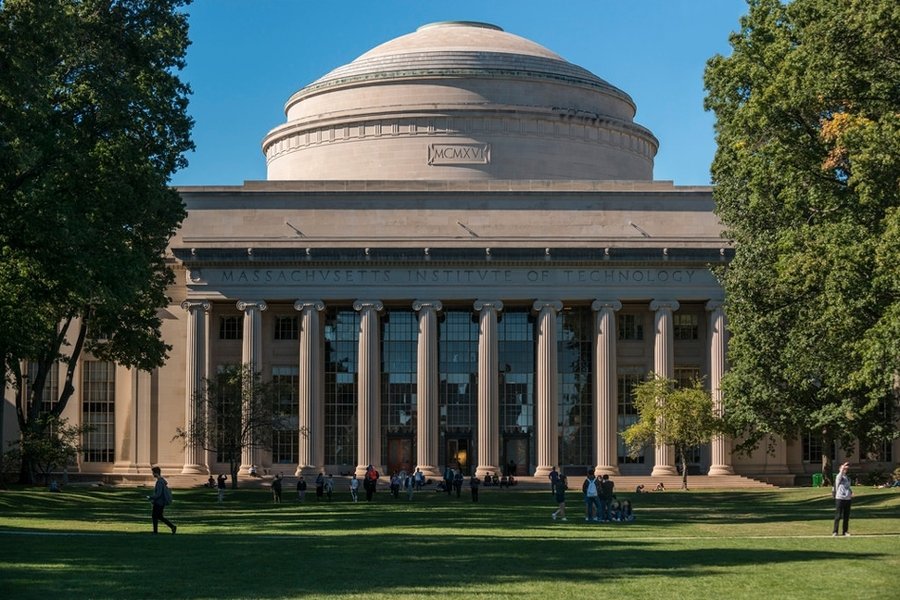Engineering is at the heart of innovation—driving progress in technology, infrastructure, healthcare, energy, and beyond. From designing safer bridges to developing AI-powered systems, engineers play a critical role in shaping modern society. With the US being home to some of the world’s most prestigious universities, aspiring engineers often look to American institutions for world-class education, research opportunities, and career prospects.
Choosing the right engineering school can be overwhelming, given the sheer number of programs available. Factors like specializations, research funding, alumni networks, job placements, tuition costs, and global reputation all play an important role. This guide highlights the best engineering schools in the US for 2025, helping you make an informed decision that aligns with your career goals.
Whether you’re aiming to work in Silicon Valley, advance renewable energy, design autonomous vehicles, or pioneer biomedical devices, the following schools stand out for their excellence in engineering education.
Also Read: Best Schools in Columbia
Best Engineering Schools in the US
What Makes a Great Engineering School?
Before we dive into the rankings, let’s outline the criteria that set top engineering programs apart:
- Accreditation: Most programs are accredited by ABET (Accreditation Board for Engineering and Technology), ensuring global recognition.
- Research Opportunities: Leading schools receive billions in research funding, allowing students to work on groundbreaking projects.
- Faculty Expertise: Professors who are industry leaders and Nobel laureates bring cutting-edge knowledge into the classroom.
- Facilities & Labs: Advanced labs, makerspaces, and innovation hubs prepare students for hands-on engineering.
- Industry Connections: Partnerships with tech giants, automotive leaders, aerospace companies, and healthcare institutions.
- Alumni Network & Career Support: Strong connections that open doors to internships, co-ops, and high-paying jobs.
- Specializations Offered: From aerospace to computer science, the variety of programs matters.
1. Massachusetts Institute of Technology (MIT) – School of Engineering
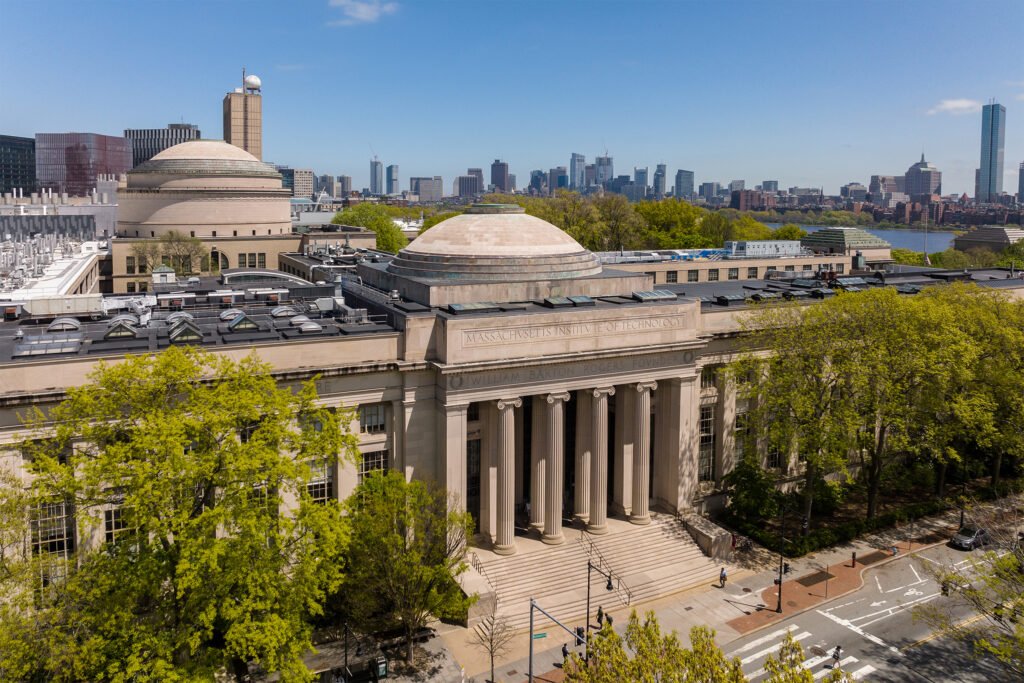
Location: Cambridge, Massachusetts
Founded: 1861
Tuition: ~$57,000/year
Specializations: Electrical, Computer Science, Mechanical, Aerospace, Robotics, AI, Energy
Notable Fact: MIT consistently ranks #1 globally for engineering and technology.
Best For: Students seeking cutting-edge research and innovation opportunities.
When it comes to engineering excellence, the Massachusetts Institute of Technology (MIT) stands in a league of its own. Renowned worldwide for its groundbreaking research, MIT’s School of Engineering has shaped modern technology, innovation, and scientific discovery for over 150 years. From pioneering robotics and aerospace technologies to leading advancements in artificial intelligence and renewable energy, MIT remains the gold standard of engineering education.
What makes MIT exceptional is its unique blend of hands-on learning, interdisciplinary collaboration, and real-world problem-solving. Students are immersed in state-of-the-art labs, research centers, and innovation hubs such as the MIT Media Lab and Innovation Lab (The Martin Trust Center), where many world-changing startups have been born.
MIT’s deep connections with top global companies like Google, Boeing, SpaceX, and Tesla give students unparalleled access to internships, research collaborations, and career opportunities. Its strong entrepreneurial ecosystem encourages graduates not only to pursue high-level engineering jobs but also to launch their own companies.
With a rigorous curriculum, strong emphasis on creativity, and a supportive network of distinguished alumni, MIT prepares students to become leaders who drive progress in technology, sustainability, and beyond. For aspiring engineers who dream of shaping the future, MIT is without question the ultimate destination.
2. Stanford University – School of Engineering

Location: Stanford, California
Founded: 1885
Tuition: ~$56,000/year
Specializations: Civil, Mechanical, Bioengineering, Electrical, Management Science & Engineering
NCES Fact: Nearly 40% of students engage in startup ventures before graduation.
Best For: Students interested in entrepreneurship and Silicon Valley connections.
Stanford University’s School of Engineering is more than an academic powerhouse—it’s the beating heart of innovation and entrepreneurship in Silicon Valley. Located just minutes away from the headquarters of Google, Meta, Apple, and countless startups, Stanford offers engineering students unparalleled access to the world’s most dynamic tech ecosystem.
The engineering curriculum is designed around interdisciplinary collaboration, encouraging students to merge technical expertise with business, policy, and design thinking. This ecosystem fosters groundbreaking ideas that often turn into successful companies. In fact, Stanford alumni have gone on to found or lead some of the world’s biggest tech giants, including Google, Yahoo, Hewlett-Packard (HP), and Tesla.
What sets Stanford apart is its culture of creativity and risk-taking. Nearly 40% of engineering students participate in entrepreneurial ventures before graduation, supported by university resources like the Stanford Technology Ventures Program and the StartX accelerator. Students also benefit from close partnerships with venture capital firms and startup incubators that thrive in the area.
Beyond tech, Stanford excels in fields like bioengineering, renewable energy, and civil engineering, preparing graduates for impactful careers in both industry and academia. Its focus on real-world problem-solving and innovation makes it ideal for students who want to go beyond traditional engineering and actively shape the future.
For those who dream of becoming not just engineers but innovators and entrepreneurs, Stanford remains one of the most prestigious and influential choices worldwide.
3. University of California, Berkeley – College of Engineering

Location: Berkeley, California
Founded: 1868
Tuition: ~$14,000/year (in-state), ~$44,000/year (out-of-state)
Specializations: Civil, Environmental, Electrical, Computer Science, Materials, Nuclear
Notable Fact: Berkeley engineers played a major role in the development of the semiconductor industry.
Best For: Students seeking affordability + global research reputation.
The University of California, Berkeley, is home to one of the most respected engineering programs in the world. Known for academic rigor, groundbreaking research, and innovation, UC Berkeley consistently ranks among the top public universities globally. What makes it even more appealing is its affordability for in-state students, offering Ivy League-level education at a fraction of the price.
Berkeley’s College of Engineering is especially renowned in computer science, electrical engineering, environmental engineering, and nanotechnology. Its faculty includes Turing Award winners and leaders who helped pioneer the modern tech industry. In fact, Berkeley engineers were central to the birth of Silicon Valley, particularly through advances in semiconductors and microelectronics.
Students benefit from the university’s close proximity to San Francisco’s Bay Area tech hub, giving them unmatched opportunities for internships and employment at companies like Apple, Google, Meta, and Tesla. Berkeley also partners with leading national laboratories, such as Lawrence Berkeley National Lab, where students can engage in high-impact research in energy, climate change, and advanced materials.
Beyond academics, UC Berkeley fosters a culture of activism, innovation, and leadership. The campus attracts some of the brightest minds who go on to become changemakers in technology, policy, and industry.
For students who want a balance of prestige, affordability, and real-world impact, UC Berkeley offers one of the strongest engineering pathways in the United States.
Also Read: Best Nursing Schools in the US
4. California Institute of Technology (Caltech) – Division of Engineering and Applied Science

Location: Pasadena, California
Founded: 1891
Tuition: ~$58,000/year
Specializations: Aerospace, Electrical, Mechanical, Bioengineering, Materials Science
Notable Fact: Home to NASA’s Jet Propulsion Laboratory (JPL).
Best For: Students passionate about aerospace, physics, and research-heavy careers.
The California Institute of Technology, better known as Caltech, may be small in size, but its global impact in engineering and science is enormous. With fewer than 1,000 undergraduates, Caltech fosters an intimate, research-driven environment where students work side by side with world-class faculty on groundbreaking discoveries.
Caltech’s engineering programs are particularly strong in aerospace, robotics, and materials science, making it a dream destination for students fascinated by space exploration and advanced technology. The university’s close ties with NASA’s Jet Propulsion Laboratory (JPL) allow students to engage directly in space missions, including the Mars Rover projects and planetary exploration.
Beyond aerospace, Caltech excels in bioengineering and interdisciplinary research, where engineering merges with biology, chemistry, and physics to tackle global challenges in healthcare, energy, and sustainability. Its low student-to-faculty ratio ensures personalized mentorship, giving students a unique chance to contribute to high-impact projects early in their academic careers.
The culture at Caltech emphasizes rigor, curiosity, and innovation. Students are encouraged to push boundaries, whether through robotics competitions, space systems design, or collaborative projects with leading industries and research centers.
For students seeking a close-knit, intellectually intense environment with unparalleled opportunities in space and research, Caltech stands out as one of the most prestigious engineering schools in the world.
5. Georgia Institute of Technology (Georgia Tech) – College of Engineering
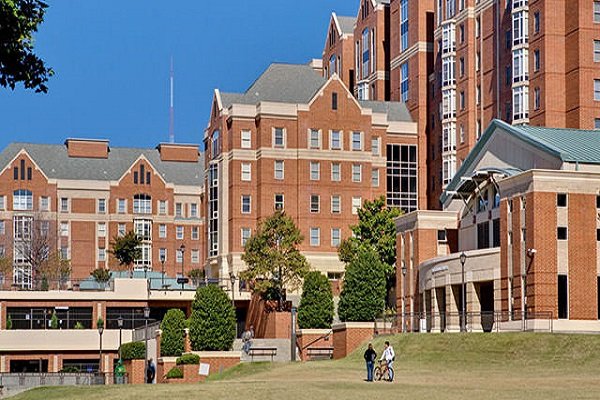
Location: Atlanta, Georgia
Founded: 1885
Tuition: ~$13,000/year (in-state), ~$33,000/year (out-of-state)
Specializations: Industrial, Mechanical, Civil, Electrical, Biomedical, Aerospace
Notable Fact: The largest engineering college in the United States.
Best For: Students seeking practical experience and affordable tuition.
The Georgia Institute of Technology, better known as Georgia Tech, is a powerhouse in engineering education. With the largest engineering enrollment in the country, it provides an incredible breadth of programs spanning nearly every discipline—from civil and electrical to biomedical and aerospace engineering. Despite its scale, Georgia Tech maintains a reputation for academic rigor, innovation, and producing graduates who are immediately prepared for industry roles.
What sets Georgia Tech apart is its emphasis on hands-on learning. The university’s co-op and internship programs are among the most extensive in the U.S., allowing students to alternate semesters between classroom learning and full-time, paid work in top companies. This system ensures graduates leave with not only a degree but also years of real-world experience, making them highly sought after by employers.
Georgia Tech is also a leader in aerospace, industrial, and mechanical engineering, with alumni contributing to groundbreaking advancements in aviation, automotive design, and robotics. Its strategic location in Atlanta, a hub for technology, business, and global industry, gives students access to internships and jobs at companies like Delta, Lockheed Martin, and Coca-Cola.
Affordability further strengthens Georgia Tech’s appeal, especially for in-state students who receive a world-class engineering education at a fraction of the cost of private institutions.
For students who want a balance of affordability, prestige, and practical training, Georgia Tech remains one of the most future-ready engineering schools in the nation.
6. University of Michigan – College of Engineering
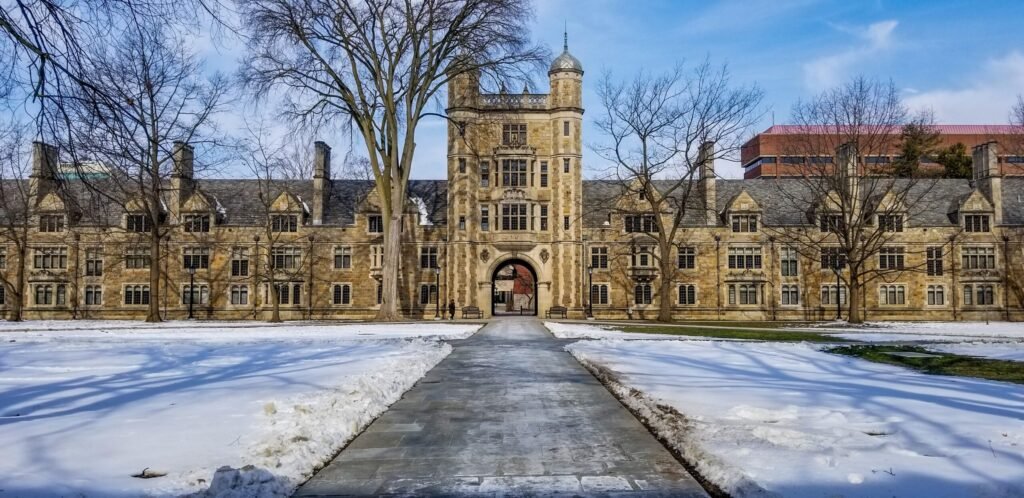
Location: Ann Arbor, Michigan
Founded: 1854
Tuition: ~$17,000/year (in-state), ~$55,000/year (out-of-state)
Specializations: Mechanical, Civil, Electrical, Computer, Biomedical, Environmental
Notable Fact: Strong ties with the automotive industry (Ford, GM, Tesla).
Best For: Students seeking top research opportunities + industry internships.
The University of Michigan’s College of Engineering consistently ranks among the top engineering schools in the nation, offering students the perfect blend of rigorous academics and real-world application. Situated in Ann Arbor, just outside Detroit—the historic heart of the U.S. automotive industry—Michigan has cultivated decades-long relationships with global giants like Ford, General Motors, and Tesla. This gives students unparalleled access to internships, co-ops, and research opportunities in cutting-edge automotive technologies, including autonomous vehicles and sustainable mobility solutions.
Michigan is a powerhouse not only in mechanical and automotive engineering, but also in robotics, biomedical innovation, and sustainable energy research. Hands-on projects are central to the Michigan experience. For example, the Michigan Solar Car Team has won international competitions, while the university’s robotics labs are pioneering advancements in artificial intelligence and autonomous systems.
The school’s culture encourages collaboration across disciplines, with engineers frequently working alongside business, public policy, and medical school students to tackle global challenges. With more than 80 engineering research centers, students gain direct exposure to groundbreaking discoveries.
While tuition is steep for out-of-state students, the return on investment is substantial thanks to Michigan’s global alumni network and deep ties with industry leaders.
For students who want to pair a world-class education with immediate career pathways in industry and research, the University of Michigan offers one of the most comprehensive engineering experiences in the U.S.
Also Read: Best Schools in Havre
7. Carnegie Mellon University (CMU) – College of Engineering

Location: Pittsburgh, Pennsylvania
Founded: 1900
Tuition: ~$60,000/year
Specializations: Robotics, Artificial Intelligence, Computer Engineering, Civil, Electrical
Notable Fact: Home to the world’s first Robotics Institute.
Best For: Students passionate about robotics, AI, and computer systems.
Carnegie Mellon University (CMU) is synonymous with innovation in robotics and artificial intelligence, making it a dream destination for future engineers who want to push the boundaries of technology. Its Robotics Institute, founded in 1979, was the first research department of its kind in the world and continues to be a global leader in autonomous systems, machine learning, and advanced AI.
At CMU, students gain hands-on experience working on projects that are shaping the future, from self-driving cars and drones to cybersecurity systems and human-robot interaction. The school’s location in Pittsburgh—a city rapidly evolving into a hub for tech and robotics startups—creates endless opportunities for internships and collaborations with both established companies and cutting-edge startups.
The engineering school places a strong emphasis on interdisciplinary collaboration, encouraging students to merge traditional engineering disciplines with computer science, business, and even the arts. This flexibility has led CMU graduates to lead innovation in fields ranging from smart infrastructure to AI-powered healthcare systems.
CMU also maintains partnerships with leading organizations, including NASA, Google, Uber, and the U.S. Department of Defense, giving students direct exposure to groundbreaking research. With smaller class sizes and a focus on project-based learning, Carnegie Mellon ensures that students don’t just learn theory—they apply it in real-world settings.
For aspiring engineers who dream of a career at the cutting edge of AI, robotics, and computer engineering, CMU is one of the most prestigious and future-focused institutions in the world.
8. Purdue University – College of Engineering
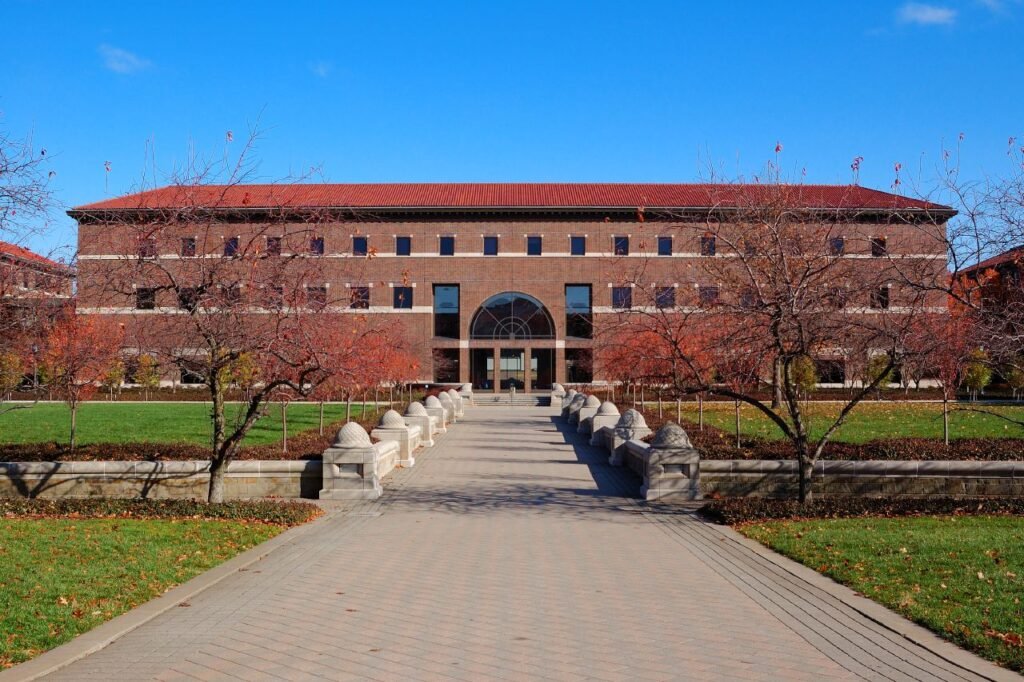
Location: West Lafayette, Indiana
Founded: 1869
Tuition: ~$10,000/year (in-state), ~$30,000/year (out-of-state)
Specializations: Mechanical, Civil, Aerospace, Nuclear, Industrial
Notable Fact: Known as the “Cradle of Astronauts”—25 Purdue alumni have gone to space.
Best For: Students seeking aerospace and mechanical engineering careers.
Purdue University’s College of Engineering is widely regarded as one of the top public engineering schools in the United States, particularly celebrated for its aerospace and mechanical programs. Nicknamed the “Cradle of Astronauts,” Purdue has produced an impressive 25 astronauts, including Neil Armstrong, the first person to walk on the moon, and Gene Cernan, the last astronaut to do so. This strong connection to space exploration underscores Purdue’s reputation as a leader in aerospace innovation.
Students at Purdue benefit from extensive partnerships with industry giants like NASA, Boeing, Lockheed Martin, and General Electric, giving them access to hands-on projects, internships, and research opportunities that prepare them for high-demand careers. The school also emphasizes a practical, industry-focused curriculum, ensuring graduates are job-ready from day one.
With its affordable tuition, especially for in-state students, Purdue provides an outstanding return on investment compared to many private institutions. Beyond aerospace, Purdue is also highly respected in mechanical, civil, nuclear, and industrial engineering, offering students a wide range of options across traditional and emerging fields.
Purdue’s engineering community is large and diverse, offering numerous student organizations, design competitions, and research initiatives that encourage collaboration and innovation. From building solar-powered vehicles to competing in aerospace design challenges, students gain invaluable real-world experience.
For ambitious engineers seeking a globally recognized degree with strong ties to industry and space exploration, Purdue is an excellent choice.
Key Factors to Consider When Choosing an Engineering School
- Accreditation: Look for ABET accreditation to ensure your degree is recognized worldwide.
- Specializations: Pick a school that matches your career goals—robotics, aerospace, biomedical, etc.
- Location & Industry Links: Schools near tech hubs or major industries offer better internships and jobs.
- Tuition & Financial Aid: Costs vary widely—public schools may offer excellent value compared to private.
- Research & Facilities: Check lab access, maker spaces, and research centers.
- Career Support: Strong alumni networks and job placement services make a huge difference.
FAQs About Engineering Schools in the US
Q: What is the hardest engineering school to get into?
A: MIT, Stanford, and Caltech due to extremely low acceptance rates.
Q: What GPA do I need for top engineering schools?
A: Typically 3.7+ for undergraduate, higher for graduate programs.
Q: Which school is best for robotics?
A: Carnegie Mellon University (CMU).
Q: Which engineering school is best for aerospace?
A: Caltech, MIT, and Purdue University.
Q: Are public universities worth it compared to private ones?
A: Yes—UC Berkeley, Michigan, Georgia Tech, and Purdue offer world-class education at lower tuition rates.
Conclusion: Finding the Right Fit
The best engineering schools in the US—MIT, Stanford, UC Berkeley, Caltech, Georgia Tech, Michigan, Carnegie Mellon, and Purdue—each excel in different areas.
- For innovation and startups → Stanford, MIT
- For affordable world-class education → UC Berkeley, Georgia Tech, Purdue
- For aerospace and space exploration → Caltech, Purdue
- For robotics and AI → Carnegie Mellon
- For automotive and energy → University of Michigan
Your choice should depend on your career goals, finances, and learning style. No matter which of these schools you choose, you’ll gain access to world-class professors, cutting-edge research, and powerful career networks that set you up for long-term success in engineering.

